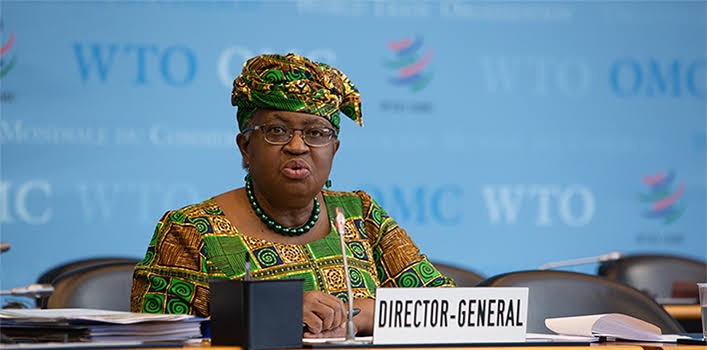(3 Minutes Read)
Dr. Ngozi Okonjo-Iweala, the Director-General of the World Trade Organization (WTO), has urged African leaders to move away from dependency on foreign aid and instead focus on harnessing domestic resources to attract investments and stimulate economic growth.
Dr. Ngozi Okonjo-Iweala, the Director-General of the World Trade Organization (WTO), has urged African leaders to move away from dependency on foreign aid and instead focus on harnessing domestic resources to attract investments and stimulate economic growth. She highlighted the necessity for a shift in mindset, noting that the continent is rich in untapped financial and natural resources that could support sustainable development. Speaking at the African Union meeting in Ethiopia, Okonjo-Iweala stated that foreign aid should be viewed as a relic of the past.
She remarked, “Africa must change its perspective on aid; it should be seen as outdated. Continent’s attention should be on two main areas: attracting investment and mobilizing domestic resources. She pointed out that Africa possesses around USD 250 billion in pension funds, much of which is invested abroad rather than in local economies.
The largest pension funds are in South Africa, followed by Nigeria, Kenya, Morocco, Botswana, and Namibia. These funds are extremely valuable, and one needs to find ways to utilize them, she said. The former Finance Minister also advocated for the recapitalization of Africa’s multilateral development banks, such as the African Finance Corporation, to enhance their funding capabilities for essential projects.
Read Also;
Currently, these institutions have a combined balance sheet of approximately USD 70 billion, while Africa’s infrastructure needs alone exceed USD 200 billion annually. Instead of seeking external financial assistance, she emphasized the importance of strengthening local institutions. Furthermore, she highlighted the urgent need for African countries to take charge of their mineral wealth, particularly lithium, manganese, and copper, which are crucial for electric vehicle battery production. She called for the development of local processing industries to create jobs, enhance intra-continental trade, and reduce the export of raw materials without added value.





